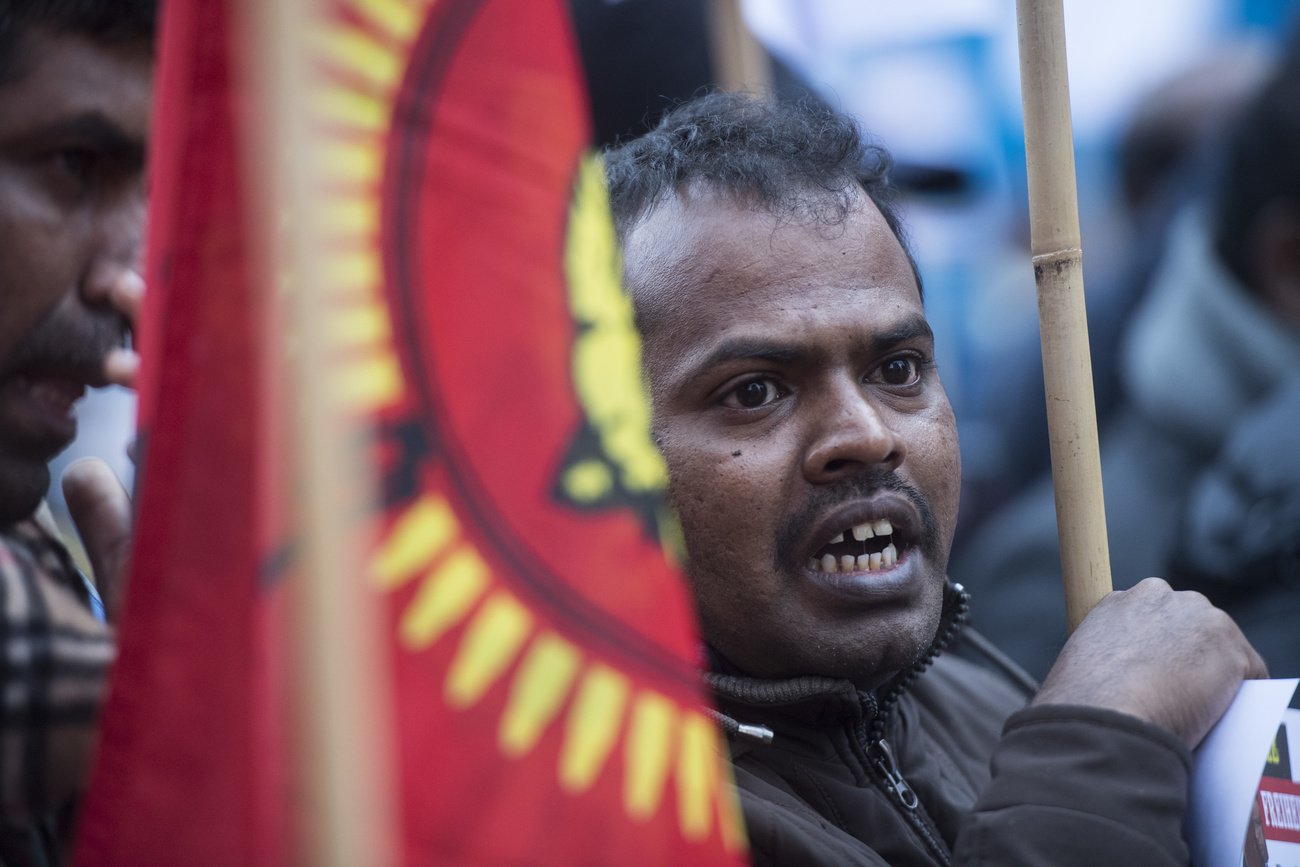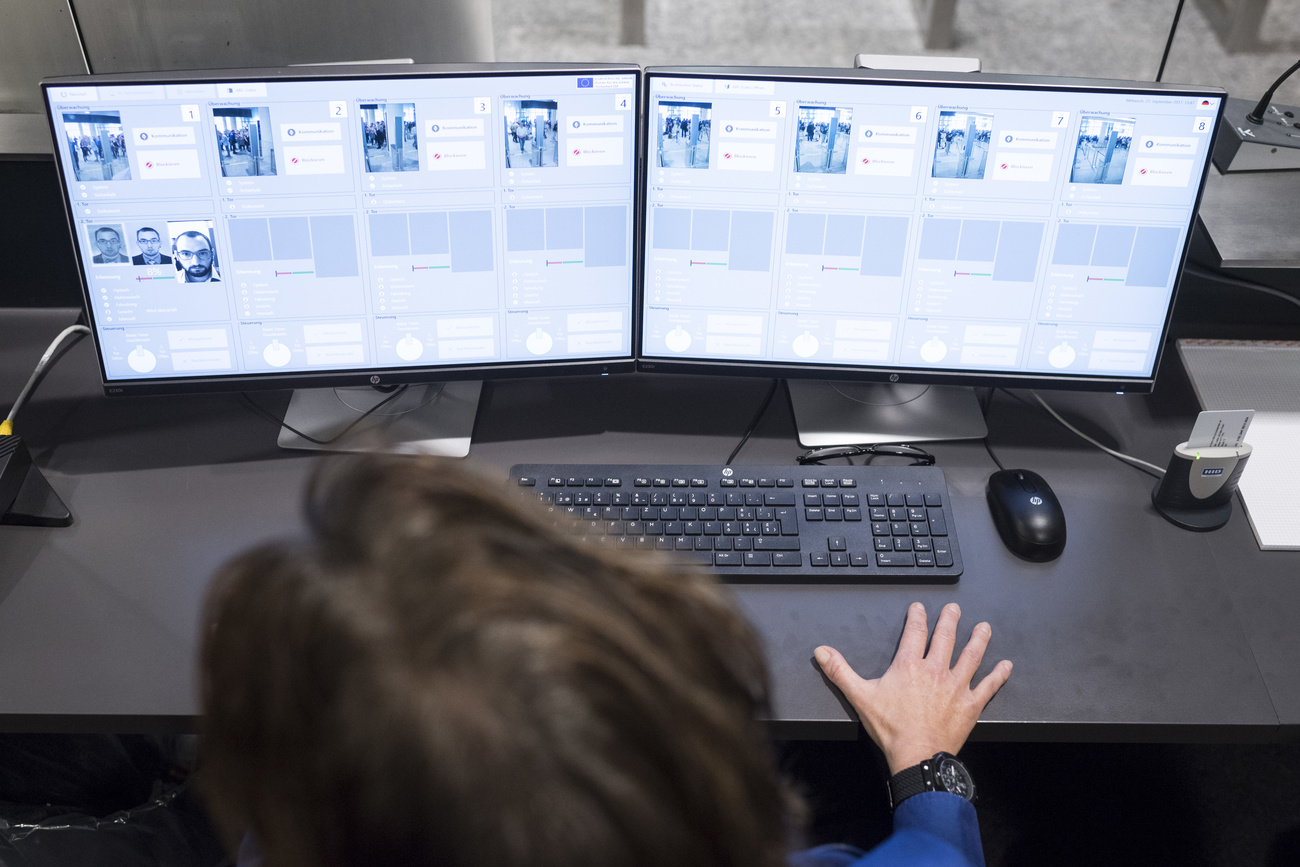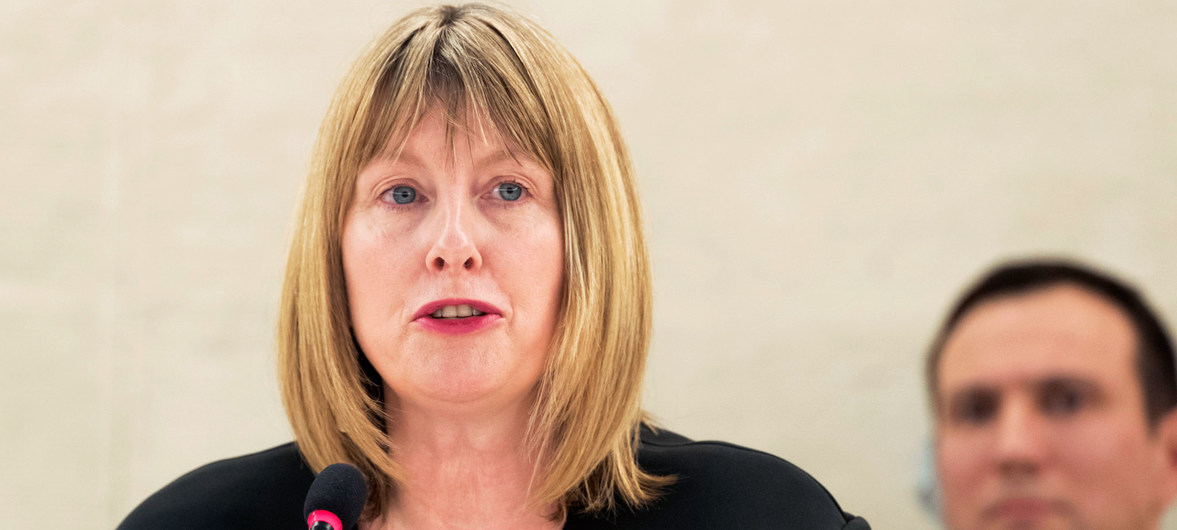Activists could be targeted by Switzerland’s new anti-terrorism law

Critics of Switzerland’s new anti-terrorism law warn that a new definition of terrorism is too broad and could endanger political activists. Are their fears well-founded?
As a member of the Swiss Tamil youth organisation, Phoenix – The Next GenerationExternal link, Nitharsan*, Swiss born of Sri Lankan descent, is no longer able to visit the country of his ancestors due to the risk of arrest.
Living in Basel, he is an activist fighting for the right to self-determination for Sri Lanka’s Tamil minority and as such is considered a terrorist under Sri Lanka’s Prevention of Terrorism Act (PTA).
In force since 1978, the powers of the Sri Lankan law were further expanded following the Easter 2019 bombings in Colombo in which some 280 people were killed. The law’s extension was strongly criticisedExternal link by human rights activists who feared it could be used to supress political dissent.

More
Newsletters
Since the adoption of the Swiss Federal Act on Police Measures to Combat Terrorism (PMCT) by popular vote on June 13, Nitharsan now worries that his activism will lead to him being placed on list of “potential terrorists” in his home country. If Switzerland were to share his political activities with foreign intelligence services, he, as well as his family members around the world, could be in danger.
“We are scared that the new antiterrorism law targets Tamil activists in Switzerland,” comments Nitharsan.
“People who go on holiday to Sri Lanka, but also to India or Malaysia could be arrested simply because they are linked to our organisation. And in these countries, they could be tortured,” he says.

More
Controversial anti-terrorism law wins voter approval
Dangerous law
At first glance this scenario seems alarmist. Switzerland is, after all, a country founded on the rule of law which presents itself to the world as a beacon of democracy. It is difficult to imagine that an individual who has committed no crime could be classified as a potential terrorist.
But the new law has enlarged the definition of terrorism to now potentially include activists who have no intention to act. The PMCT also allows the Federal Office of Police (fedpol) to take a series of steps against an individual it suspects of being a threat, notably by forcing that person to be interviewed, to report to authorities or to be placed under house arrest. This potentially means that Nitharsan’s activities as well as his connections could be shared with third parties.
The fears of the Tamil activists are shared by Nils Melzer, the United Nations Special Rapporteur on Torture and other Cruel, Inhuman or Degrading Treatment or Punishment.
Melzer argues the new law is problematic because it defines terrorism as “actions intended to influence or modify the state order and likely to be carried out or facilitated by serious offenses or by the spread of fear”. In every other country, a terrorist must have the intention to commit a violent crime to spread fear for political purposes, explains Melzer.
“Switzerland (now) has a definition that is broader and vaguer than any other democratic nation. We are setting a terrible example.”
For Melzer, activists of all stripes – whether Tamil, Kurd, Tibetan, Muslim, or environmentalist – could be concerned by this new definition of terrorism. The new law would push Switzerland to share names on its list of potential terrorists.
This means that if a Swiss activist were to travel as a tourist to a country with less respect for human rights, he or she could be arrested.
Melzer says such cases already happen frequently. “Regularly, people disappear in countries where there is little respect for human rights, simply because they are named on a list of potential terrorists,” he says.

More
‘Switzerland is sending a dangerous signal to the world’
Government promises
Throughout the campaign prior to the PMCT vote, the police and justice minister Karin Keller-Sutter assured the Swiss population that the measures contained in the law would not apply to activists.
“To be a potential terrorist, one must represent a real danger,” she said in an interview with Le Temps.
In a written response to questions from SWI swissinfo.ch, fedpol spokesperson Florian Näf said: “Radical opinions are not enough to be able to order police measures against terrorism.”
Näf said the new law does not provide for the creation of a list of potential terrorists.
“It is always a case-by-case assessment based on observable facts,” he said.
Although one would hope that as a democratic state Switzerland would apply its anti-terrorism law in a non-discriminatory fashion, the legal basis now exists for authorities to target “annoying” activists, and Melzer remains to be convinced by the government’s good faith assurances.
“In the beginning, certainly the law will be applied in a reasonable way, but the authorities will begin to use the space that they have,” he comments.
Melzer notes that even before the vote, the government had revealed it was more than ready to use repressive tactics such as when it conducted raids on climate activists who had called for boycott of the military service.
“One could imagine a situation in which tensions caused by the pandemic lead to corona-sceptics beginning to be treated as terrorists,” he says. “It is extremely important to introduce ordinances to clarify and curtail the law.”
Melzer remains doubtful of the government’s ability to integrate safeguards to prevent abuses. He cites the example of the 1989 secret files scandal when Switzerland discovered that 900,000 of its citizens had been placed under surveillance. Those targeted included Eastern European nationals, Swiss citizens, organizations, firms, and various political groups, mostly on the left.
“These scandals have shown that the government still does not know what the intelligence services do and that in the past, it has not been capable to control them as should be the case in a state of law,” he argues.

More
Justice minister defends anti-terrorism law against child rights criticism
The French example
Frédéric Bernard, professor of public law at the University of Geneva, also believes the new law is a threat to political activism, something which has already been observed in France.
“The special powers given to the French government after the 2015 attacks in Paris have been used to place climate activists under house arrest,” says Bernard.
Amnesty International agrees the new Swiss anti-terrorism legislation opens the door to authorities acting arbitrarily.
“People risk being apprehended based on certain discriminatory criteria,” says Amnesty International’s Swiss spokesperson Nadia Boehlen, adding that the France example is proof of the possibility.
* Name withheld
Translated from French by Sophie Douez; edited by Virginie Mangin

In compliance with the JTI standards
More: SWI swissinfo.ch certified by the Journalism Trust Initiative










You can find an overview of ongoing debates with our journalists here . Please join us!
If you want to start a conversation about a topic raised in this article or want to report factual errors, email us at english@swissinfo.ch.